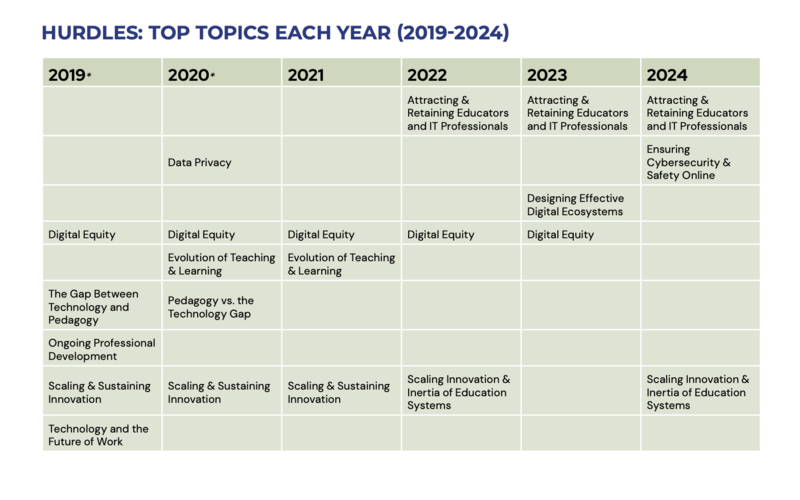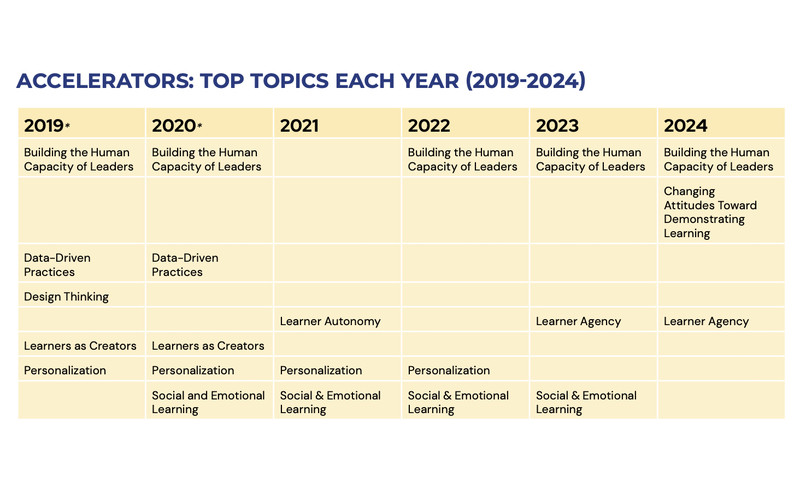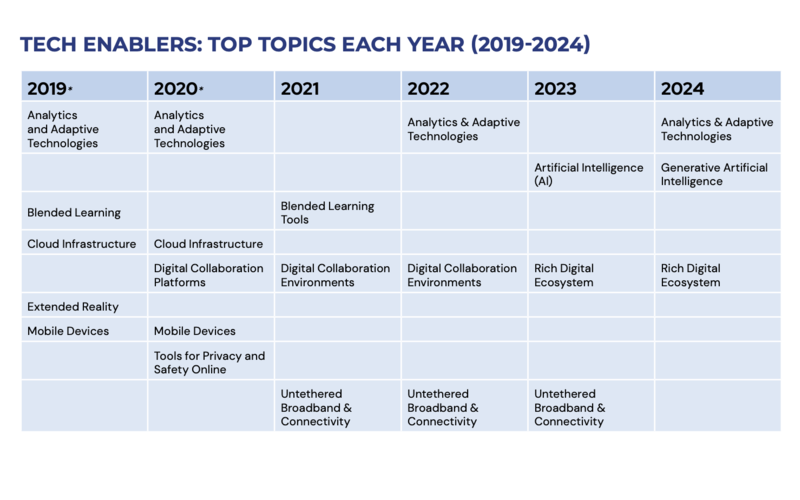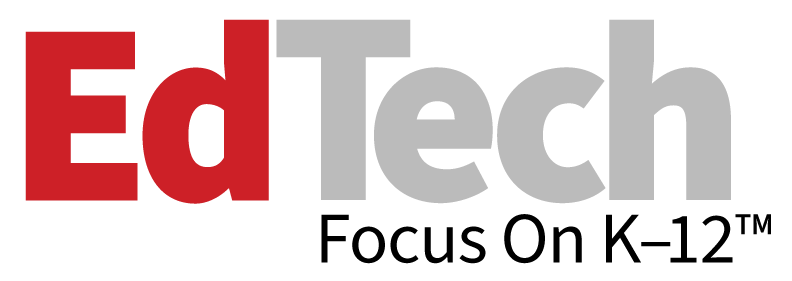In the Consortium for School Networking’s 2024 Driving K–12 Innovation report, the organization lists generative artificial intelligence among the current tech enablers in schools. CoSN defines a tech enabler as a tool that schools can use to surmount hurdles — roadblocks forcing schools to slow down or make a leap — and leverage accelerators, the “mega trends” that motivate and increase the speed of innovation.
Generative AI has taken the tech world by storm, making news headlines and sparking federal policies since OpenAI’s release of ChatGPT in November 2022. Its prevalence has impacted tech users in every industry, and K–12 education is no exception.
DIVE DEEPER: Experts share advice on integrating artificial intelligence into your organization.
Where Do Schools Stand on AI?
Generative AI is largely used by teachers, as indicated by recent research and evidenced by popular sessions at ed tech conferences. A study by Intelligent found that 98 percent of teachers use ChatGPT in some capacity, and 97 percent of teachers use it to write lesson plans.
With companies such as Microsoft and Google releasing their own generative AI solutions, the use of this technology in schools is likely to continue growing.
Microsoft Copilot AI was announced in September 2023 as “a simple and seamless experience available in Windows 11, Microsoft 365, and in our web browser with Edge and Bing. It will work as an app or reveal itself when you need it with a right click,” notes a Microsoft blog post.
Click the banner below to get help managing your Windows 11 migration.
Google’s AI solution Gemini, previously known as Bard, debuted in December 2023. “It was built from the ground up to be multimodal, which means it can generalize and seamlessly understand, operate across and combine different types of information including text, code, audio, image and video,” notes a Google blog post by Demis Hassabis, the CEO and co-founder of Google DeepMind.
Still, as technologies race ahead, school policies continue to lag. According to an Education Week survey taken in November and December 2023, 79 percent of educators said that their districts do not have clear AI policies.
And while the Intelligent study found that 8 out of 10 teachers approve of students using AI, 20 percent of respondents to the Education Week survey said that students are prohibited from using AI in their districts. Seven percent said that it’s banned for all users. This fosters confusion and furthers inequities for students, as some learn to navigate the tech in classroom spaces, some explore it at home with no guidance and others lack access to it altogether.
Other Notable Trends in CoSN’s 2024 K–12 Innovation Report
Generative AI hadn’t previously made an appearance in one of CoSN’s Driving K–12 Innovation annual reports, though last year’s report named AI in general a tech enabler.
The other tech enablers in this year’s report, analytics and adaptive technologies and rich digital ecosystems, have appeared in some form in numerous past reports dating back to 2019.
Untethered broadband and connectivity, meanwhile, did not make this year’s report as a tech enabler for the first time since initially appearing on the list in 2021.
There were other large shifts among the accelerators in this year’s report. CoSN dubbed “changing attitudes toward demonstrating learning” an accelerator for the first time this year, and social and emotional learning did not make the report for the first time since 2020.
On the other hand, building the human capacity of leaders, which was named an accelerator in the 2024 report, has shown up nearly every year since 2019.
As for hurdles, cybersecurity returned to the report for the first time since 2020. Other hurdles named this year are “attracting and retaining educators and IT professionals” and “scaling innovation and inertia of education systems.”
UP NEXT: More schools are modernizing their IT procurement processes.













